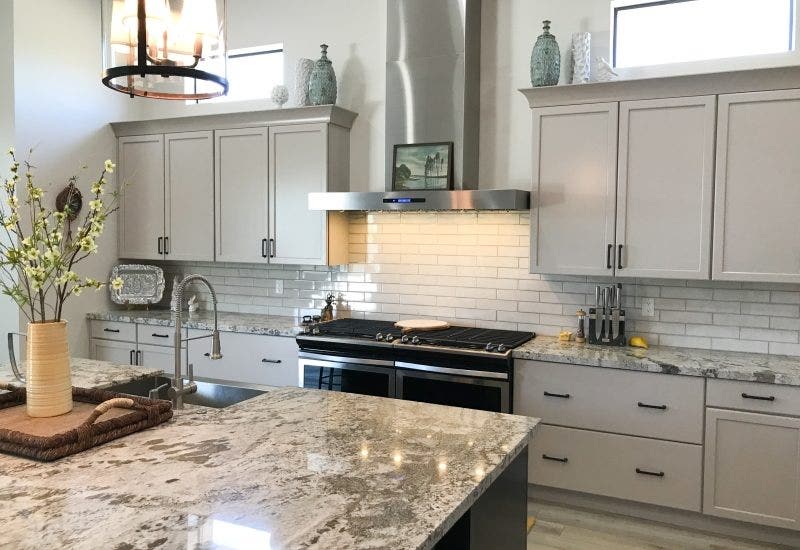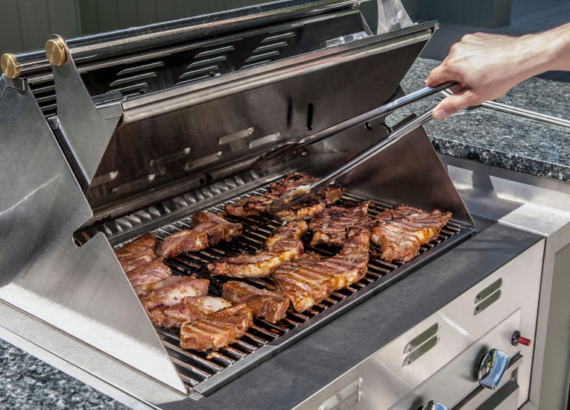Will Your Kitchen Remodel Require a Home Inspection?

Does your kitchen remodel require a permit and inspection? You might be wondering this as you get your renovation started.
Of course, you’re hoping you won’t have to go through the hassle. Applying for permits, paying your dues, and waiting to see if you’re approved can be quite a process. Plus, there’s no guarantee your renovation will pass inspection.
So, how do you know if you’ll need a permit and home inspection before remodeling?
The short answer is that it all depends on what you plan to update. Any projects that change the foundation of your home require a permit. Also, large projects involving electrical or plumbing usually require permits and inspections. Countertops, floors, painting, and replacing appliances does not typically require any permits.
Table of Contents
How the Permit and Inspection Process Works
Local municipalities issue permits based on city regulations. There are no federal standards, so building codes vary from state to state.
The best way to know if your town requires a permit for renovations is to contact your local government. Or you can check its website. If necessary, you’ll need an inspection to ensure the area is up to code. An inspector will come to your home to approve your project.
You may choose to use a contractor. They often obtain the necessary permits for remodeling and building. Then they arrange for the inspection to occur. But, as the homeowner, it’s up to you to ensure all renovations are completed lawfully.
Any remodeling that occurs without properly obtaining permits can endanger or invalidate the future sale of your home. You may have to pay fines or tear down and redo your updates. Additionally, you can be liable if unpermitted work causes injury or harm to anyone in the future.
Renovations That Require a Permit
Home updates that alter your property’s structure will require a permit and inspection.
This includes changing bedrooms, adding rooms, garages, decks, building sheds, and porches. Local authorities want to guarantee your home can support your planned renovations.
You’ll likely need a permit if you plan on completing a kitchen remodel that knocks down a wall.
You’ll also need a permit to park a dumpster for easy trash disposal during your remodeling process. You’ll likely need one for the following projects:
- Electrical and plumbing: Chances are you’ll need a permit if you’re updating any electrical or water feature in your kitchen. This includes installing new or removing old appliances. Some local ordinances require one even for moving an electrical outlet. So you’ll probably need one for your kitchen renovation.
- New windows: You’ll likely need a permit if you’d like a bit more natural light in your kitchen. Cutting a new hole in the siding and installing skylights or new doors requires approval.
- Total cost: Depending on your local ordinances, you might need to obtain a permit if your kitchen renovation costs exceed $5,000. Confirm with your local authorities if this is required.
- Water heater or HVAC: You’ll need to request a permit if you plan on installing a new water heater. You’ll also need to get one if you’re getting a new HVAC system.
Renovations That Don’t Require a Permit
Minor upgrades may not need a permit or inspection. You can do most of these projects independently or hire a contractor to do small jobs.
- Updated countertops: Pick laminate if you want to install your own countertop. There are several options designed to look like natural material. Quartz is also a great option thanks to its durability.
- Floor installation: Choose a hardwood or laminate when picking a floor for resale value. Laminate is an affordable and durable option that can look like hardwood.
- Painting: Consider a high-gloss finish paint when selecting your color. You’ll want a pigment that is durable and stain-resistant. If you accidentally splash food on the walls, you can use a wet rag to wash away the stain.
- Faucet replacement: You’d be surprised how revamping your kitchen faucet can provide an entirely new look. Try stainless steel or chrome for a contemporary feel.
Related: How to Remodel Your Entire Home (step by step)
How to Get a Permit for Your Renovation
1. You should first draw up plans for your kitchen renovation.
If you’re using a contractor, they’ll have blueprints of the project for you.
2. You’ll need to complete a permit application and submit your blueprints.
Some local municipalities offer this paperwork online. Your town will want to ensure your renovation plans are up to code before inspecting your project.
3. Pay the fee.
The amount depends on your city and the renovation itself. According to HomeAdvisor, the average building permit costs $1,312, with homeowners paying anywhere between $437 and $2,271 in fees.
How long does it take to get a permit?
Depending on your municipality, you can expect to wait for one to four weeks for your permit to be approved. The wait primarily depends on the complexity of your renovation project and the backlog of permits in your city. Finding available inspectors can also further slow the process.
How to Set Up Your Inspection
After acquiring an approved permit, your municipality will outline what inspections are needed for your renovation project.
Follow these steps to set up your inspection.
1. Ensure you tape your paper permit to your door or window so the inspector can see it when they visit.
2. You or your contractor will need to call an inspector to schedule a walkthrough of your work site.
Your city might have a list of approved inspectors you can contact if you’re independently completing your project.
3. The inspector will approve the project if your renovation is up to code.
If your plans are lacking, the inspector will give you a list of safety areas that need to be corrected. Address this list before moving forward with renovations.
It’s OK if you don’t pass your review at first. Take your checklist of corrections and get to work. Have your contractor redesign their plans and install the necessary safety measures. Once the list is complete, call the inspector again and schedule another inspection. You’ll pass with flying colors this time.
A Final Word on Inspections
The permit process and inspections can be painstaking! But it’s best to go about it legitimately.
You don’t want to cut corners with permits or inspections. They’re a safety measure for your home and ensure you can sell your property in the future. Treat the inspectors with respect when you redesign your kitchen and value their insight. They’re only trying to help.
Start Your Project Today
Now that you know the facts about permits and inspections, you’ll be prepared to start your kitchen renovation in no time. Thanks for reading!
Thanks to Rose Morrison from Renovated.com for this guest post!
Related Articles
Household Plumbing Inspection Checklist







Comments are closed.